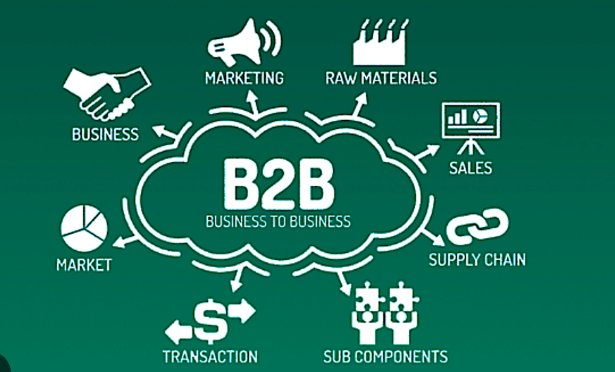Understanding B2B Applications: Powering Business-to-Business Operations

In today’s digital-first economy, B2B (Business-to-Business) applications play a vital role in streamlining and optimizing operations between companies. Unlike B2C apps that target end consumers, B2B applications are designed specifically to meet the complex needs of businesses, helping them improve productivity, communication, and revenue growth.
What Are B2B Applications?
B2B applications are software solutions that facilitate transactions, communication, or services between two or more businesses. These applications can range from simple inventory management tools to advanced customer relationship management (CRM) platforms or AI-driven marketing solutions.
Key Types of B2B Applications:
-
CRM Systems (e.g., Salesforce, HubSpot)
Help businesses manage customer interactions, sales pipelines, and client data efficiently. -
ERP Software (e.g., SAP, Oracle)
Integrates core business processes such as finance, HR, and supply chain management. -
Collaboration Tools (e.g., Slack, Microsoft Teams)
Facilitate internal and external communication, especially in remote/hybrid work models. -
Marketing Automation Platforms (e.g., Mailchimp, Marketo)
Automate email campaigns, lead generation, and customer segmentation. -
E-commerce Platforms (e.g., Shopify Plus, Alibaba)
Enable businesses to sell products/services to other businesses online. -
Project Management Tools (e.g., Asana, Trello, Monday.com)
Help manage tasks, timelines, and team collaboration on business projects.
Benefits of B2B Applications:
-
Efficiency – Automate repetitive tasks and reduce manual errors.
-
Scalability – Easily adapt to growing business needs.
-
Cost-Effectiveness – Lower operational costs with integrated solutions.
-
Better Decision Making – Real-time data insights and analytics support strategic planning.
-
Improved Client Relationships – Tools like CRM enable personalized and responsive service.
Current Trends in B2B Applications:
-
AI Integration – Enhances automation and predictive insights.
-
Cloud-Based Solutions – Offer flexibility, security, and remote access.
-
Mobile Optimization – Supports on-the-go business operations.
-
APIs and Integrations – Seamlessly connect with other tools for a unified ecosystem.
-
Focus on UX/UI – B2B apps are becoming more user-friendly, reflecting B2C design trends.
Conclusion:
B2B applications are the backbone of modern enterprise operations. As digital transformation accelerates, businesses that leverage the right tools will gain a competitive edge. Whether it's managing customers, automating marketing, or streamlining supply chains, B2B software is key to sustainable growth and efficiency in the business world.






















